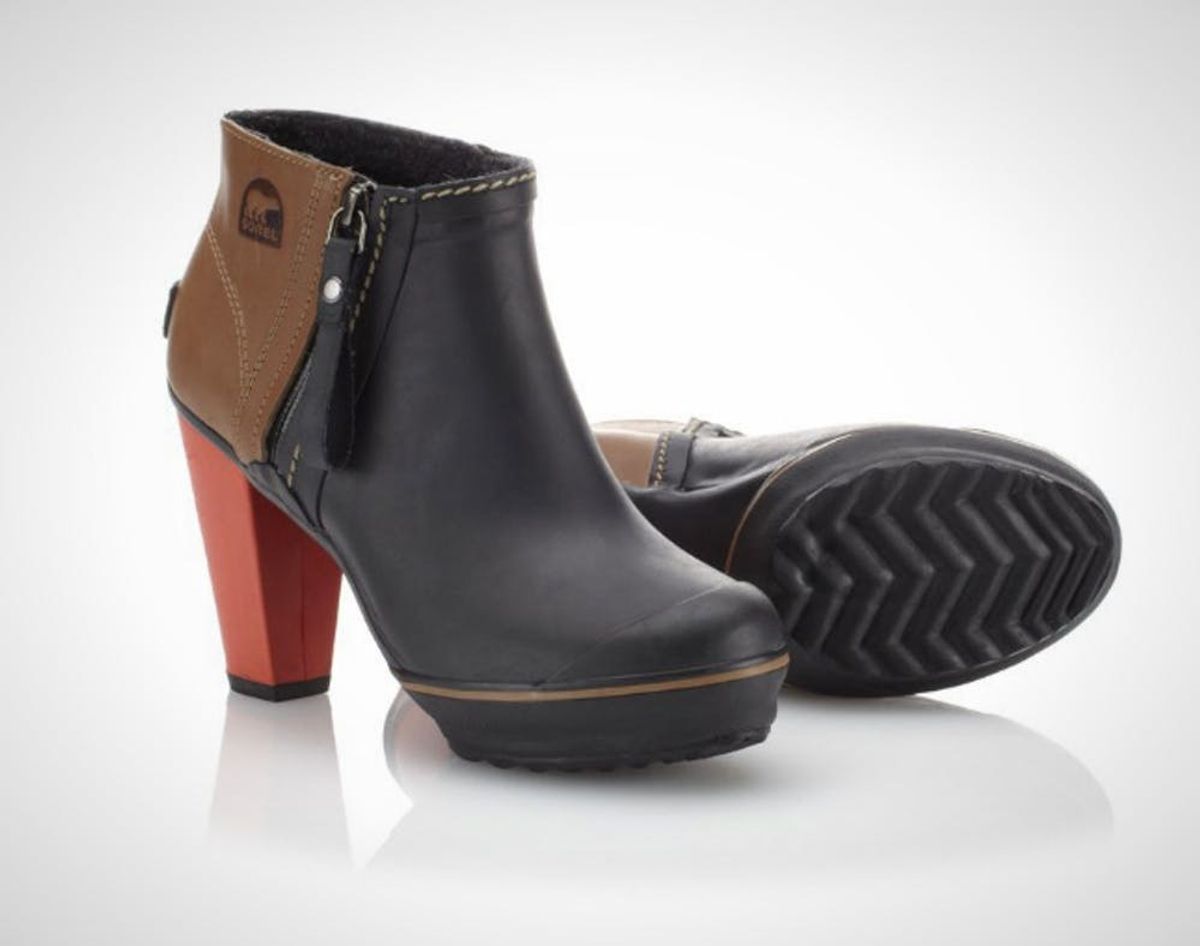
There’s a bit of a Goldilocks dilemma when it comes to finding a stylish pair of winter boots. While snow shoes are too big and bulky, your average fall booties are just a little too basic for winter wear. So when it comes down to it, turn to these 15 chic boots that don’t sacrifice style for comfort when the temperature drops. In our eyes, that’s just right. :)
1. Shellys London Houndstooth Pony Hair Ankle Boot ($120): Everyone knows there’s no pattern more chic than Houndstooth, especially when paired with black, pony hair paneling. Maybe these ankle boots aren’t the best for wet weather, but they’re perfect for kicking around the first dusting of freshly fallen snow.
2. Casual Winter Boots ($232): These suede, knee-high boots are an instant classic. Pair with a grey trench coat or quilted bomber jacket for seriously high-end winter look.
3. Wedge Heel Boots ($60): Keep your feet warm and fuzzy in these wedge heel booties. Faux fur will surely tickle your ankle’s fancy ;)
4. Dollar Vintage Wellies ($30): We couldn’t pass up these basic Wellies based on their color alone. ‘Cause who wouldn’t want to splash through a sleet storm in these bright mint boots?
5. Women’s Medina Rain Ankle Boot ($225): These waterproof ankle boots were the main inspiration for this chic boot roundup: functional for winter weather, yet so incredibly cool. When we saw the coral color block heel, it was love at first sight.
6. Swedish Hasbeens 877 Zip It Emy Ankle Boots ($454): Is there any kind of shoe more durable than a clog? We’re big fans of Swedish Hasbeens’ ability to design footwear that’s inspired by tradition, yet so fashion-forward, just like these matte-finished ankle boots.
7. Valenme Snowflake Booties ($340): Saddle shoes meet riding boots in this amazing winter boot mashup. We’re obviously smitten with the side snowflake embellishment.
8. Ash Yahoo Hidden Wedge Ankle Boot ($275): Hidden wedge heels just got incredibly cozy. Get a boost from your winter boot with these shearling-lined ankle boots.
9. Abigail Neoprene Ankle Boots ($60): These black and blue ankle boots might be the ultimate winter boot. Flexible neoprene ankle panels let you slip in with ease no matter how thick your socks are.
10. Women’s Joan of Arctic Wedge Mid Boot ($240): These waterproof, wedge ankle boots are a trendsetter’s ultimate snow shoes. A sleek, yet durable design will let you frolic through the snow in style.
11. James Embroidered Booties ($140): Get cozy with these Western-inspired winter boots. Wear this pair with a pair of fleece-lined leggings for ultimate comfort!
12. Report Signature Allon Heeled Booties ($160): Kick Jack Frost in the butt with these fierce heeled combat boots! Faux velvet gives them a shiny, winter wonderland feel.
13. Ash Yes Triple-Buckle Hidden Wedge Boot ($335): This might be our favorite pair of chic winter boots on the list. Trendy on the outside, comfy on the inside—you can’t ask for much more!
14. Bass Tanner Lace Up Boot ($119): These two-toned suede boots are perfectly preppy. Lace up this handsome pair with wool peacoat or roomy cocoon coat on any winter day.
15. Dani Boots ($235): You know a pair of boots are warm when they come equipped with a pair of tweed leg warmers! Tan contrast straps dress up this pretty pair of totally wearable chocolate boots.
Have you found the perfect pair of chic winter boots? Where did you find them? How do you style them? Talk to us in the comments below!



















